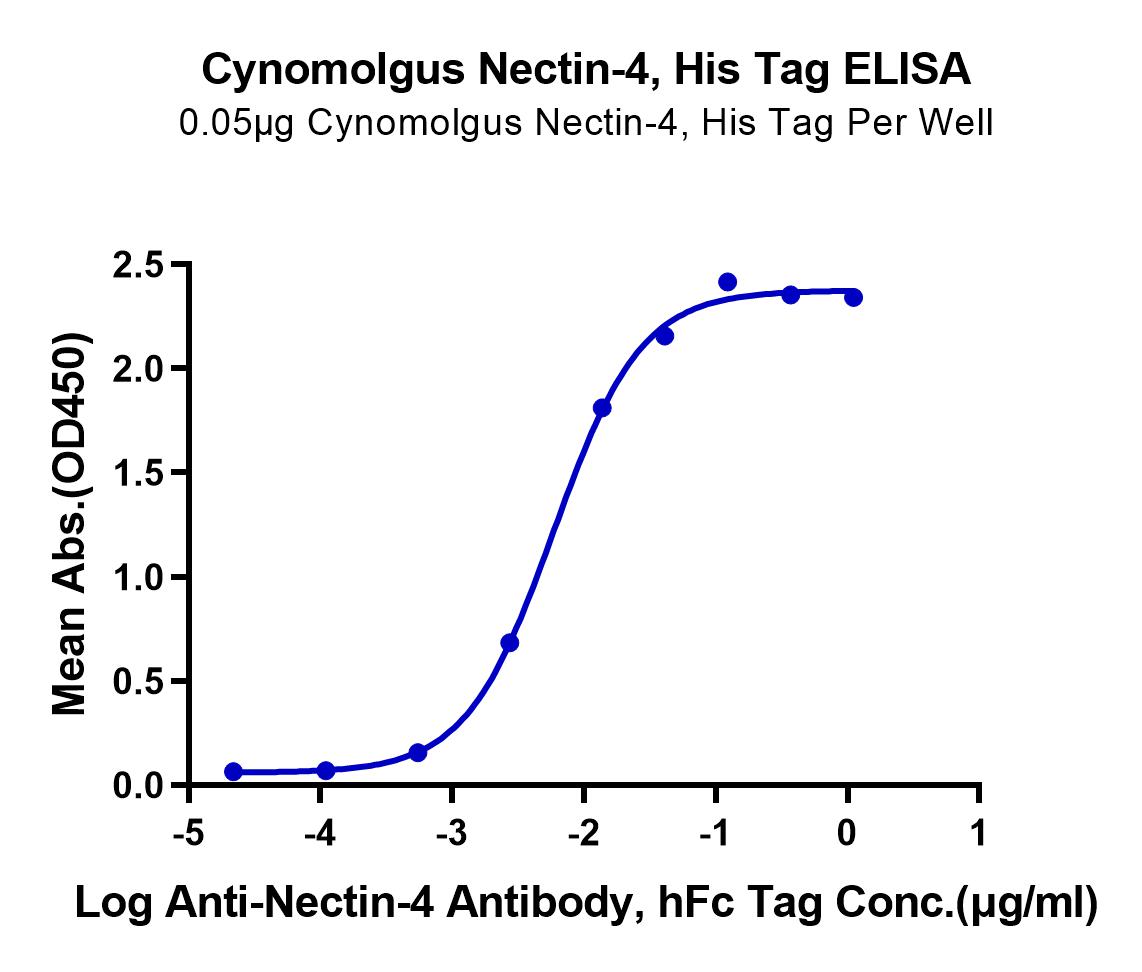|
| Cynomolgus Nectin-4 Protein (LTP11021) |
|
| LTP11021 |
|
| 100ug |
|
|
$473 In stock |
| Nectin-4 seems to be involved in cell adhesion through trans-homophilic and -heterophilic interactions, the latter including specifically interactions with NECTIN1. Does not act as receptor for alpha-herpesvirus entry into cells.(Microbial infection) Acts as a receptor for measles virus. |
| Recombinant Cynomolgus Nectin-4 Protein is expressed from Expi293 with His tag at the C-terminal. It contains Gly32-Val351. |
|
| Nectin-4 |
|
| Cynomolgus |
|
| XP_005541277.1 |
|
| Gly32-Val351 |
|
| The protein has a predicted MW of 35.9 kDa. Due to glycosylation, the protein migrates to 38-48 kDa based on the Tris-Bis PAGE result. |
|
| Immobilized Cynomolgus Nectin-4, His Tag at 0.5ug/ml (100ul/Well) on the plate. Dose response curve for Anti-Nectin-4 Antibody, hFc Tag with the EC50 of 5.9ng/ml determined by ELISA. See testing image for detail. |
|
| C-His |
|
| Expi293 |
|
| > 95% as determined by Tris-Bis PAGE; > 95% as determined by HPLC |
|
| Less than 1EU per ug by the LAL method. |
|
| Lyophilized from 0.22 um filtered solution in PBS (pH 7.4). Normally 5% trehalose is added as a protectant before lyophilization. |
|
| Reconstituted protein stable at -80 C for 12 months, 4 C for 1 week. Use a manual defrost freezer and avoid repeated freeze-thaw cycles. |
|
| Shipped at ambient temperature. |
|
| Centrifuge tubes before opening. Reconstituting to a concentration of more than 100 ug/ml is recommended. Dissolve the lyophilized protein in distilled water. |
|
|  |
 https://www.lifetein.com
100 Randolph Road, Suite 2D,
Somerset
USA
New Jersey
08873
https://www.lifetein.com
100 Randolph Road, Suite 2D,
Somerset
USA
New Jersey
08873
 https://www.lifetein.com
100 Randolph Road, Suite 2D,
Somerset
USA
New Jersey
08873
https://www.lifetein.com
100 Randolph Road, Suite 2D,
Somerset
USA
New Jersey
08873